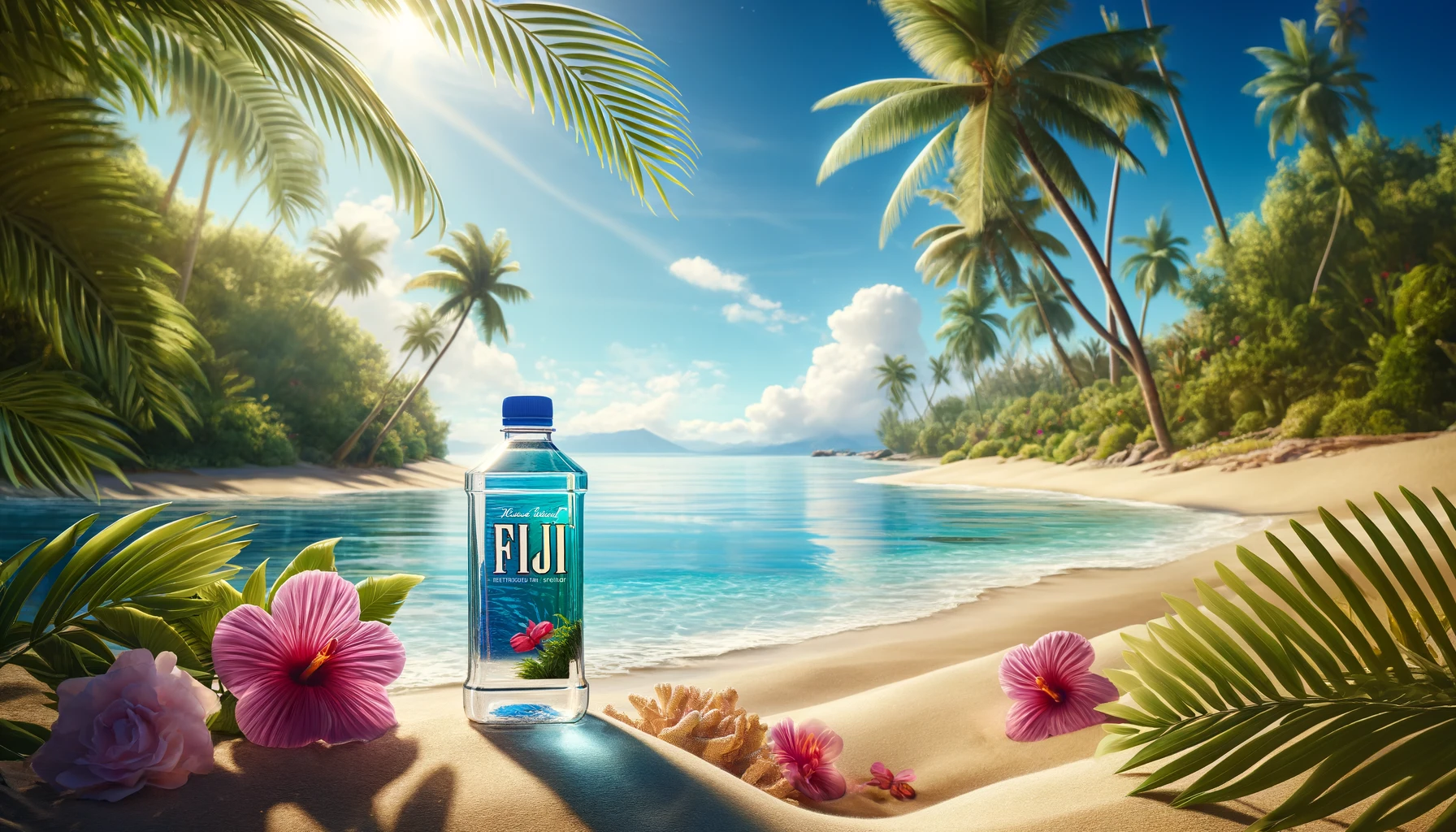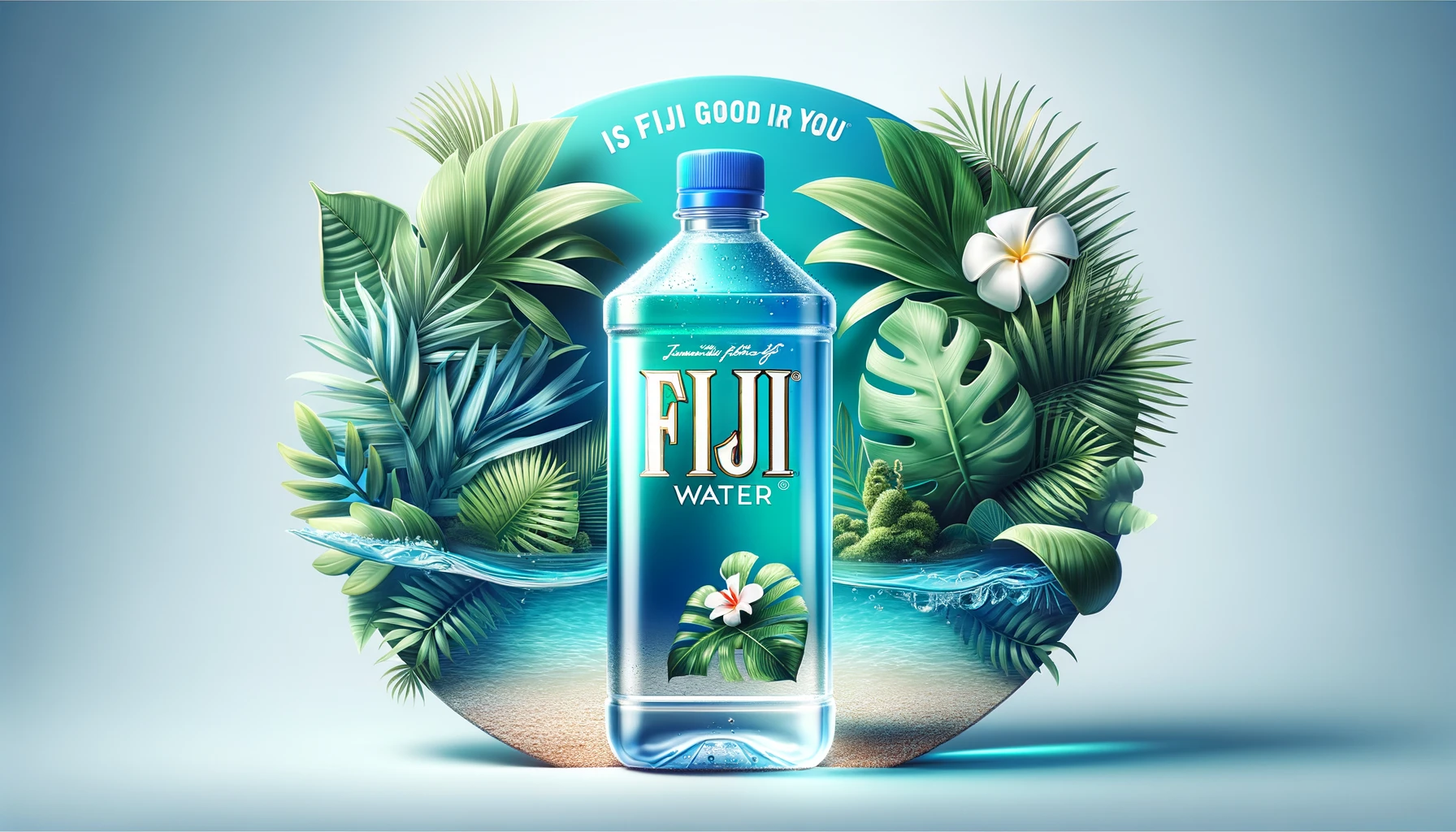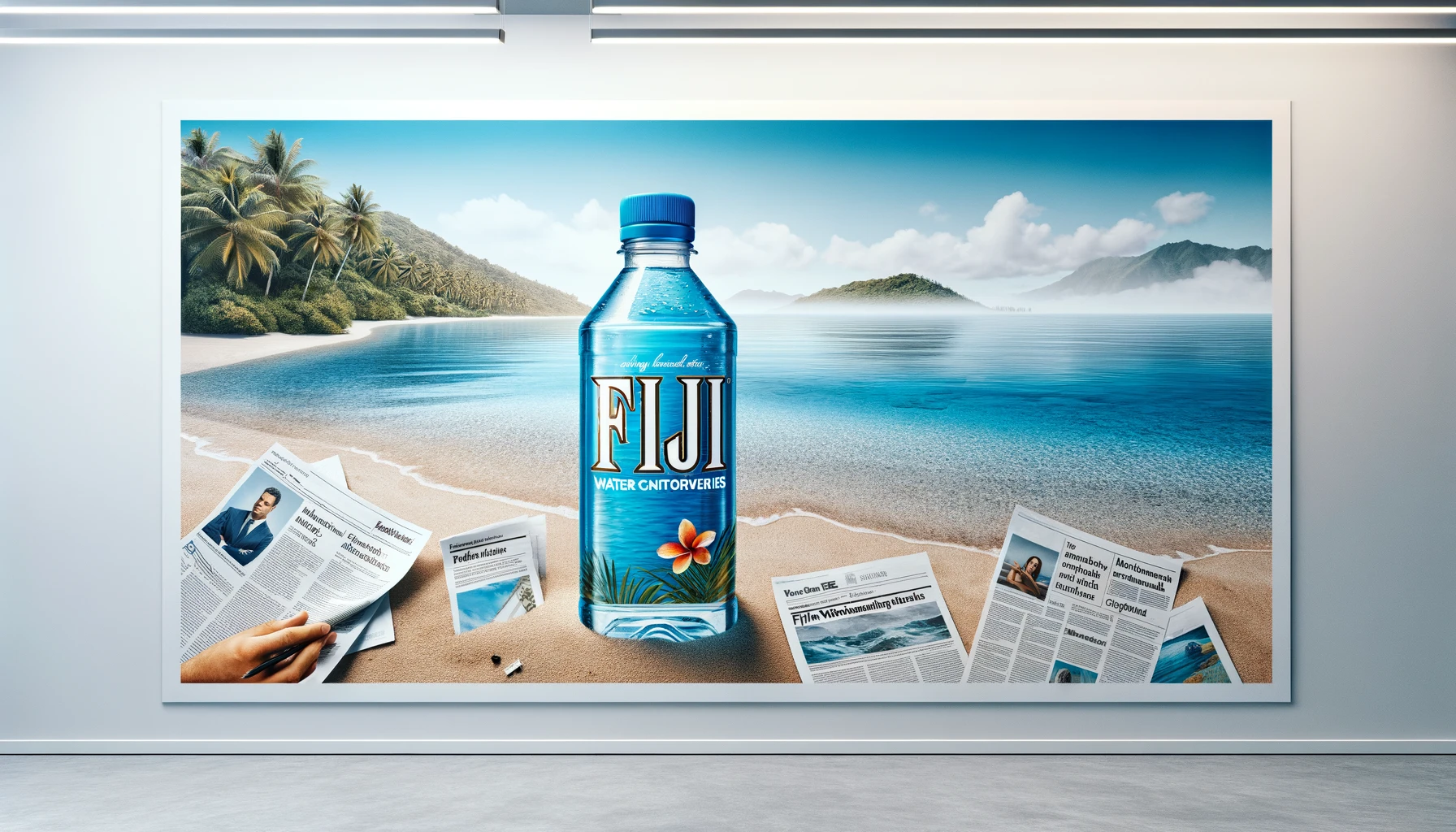Is Fiji Water Good for You? (Contents & Controversy)

Fiji Water is known for its clean, fresh taste and mineral content, but is it really good for you? This water comes from an underground aquifer in Fiji and is valued for its purity and natural mineral content. Let’s take a closer look at the benefits and issues related to Fiji Water.
Fiji Water isn’t just regular tap water; it’s sourced from Fiji and packed with minerals that can be good for your health. In this article, I have looked at its nutritional benefits, like hydration and mineral content, and also discussed some concerns, such as its environmental impact and high price. While Fiji Water offers health benefits and a unique taste, it’s important to consider these factors when deciding if it’s the right choice for you.
Is Fiji Water Good for You

Fiji Water, sourced directly from an aquifer on the island of Viti Levu in Fiji, is often considered a premium bottled water option. This natural artesian water is drawn from an underground source, making it rich in minerals and giving it a distinctive soft, smooth taste.
It’s very pure and contains natural minerals that are good for your health. The pH of Fiji Water is slightly alkaline, which some believe helps balance the body’s acidity. Also, drinking Fiji Water can be beneficial because it has silica, a mineral that helps keep your skin, hair, and nails healthy. The pH level of Fiji Water, which stands at about 7.7, can help consumers recognize its ability to maintain a balance of acidity and alkalinity in the body.
The Fiji Water process involves natural filtration through volcanic rocks, which enriches the water with minerals and electrolytes while preserving its natural purity. This method not only maintains the water’s high quality but also imbues it with its signature soft, smooth taste.
Ownership of Fiji
The company behind this iconic brand is Fiji Water Company LLC, which operates under the umbrella of The Wonderful Company. Stewart and Lynda Resnick own this larger conglomerate.
Many consumers wonder if Fiji Water is really from Fiji. Indeed, it is sourced directly from an artesian aquifer located in Fiji. This natural source is what gives Fiji Water its freshness and purity. It is composed of natural mineral water that has filtered through volcanic rock, enriching it with minerals. Fiji Water was first launched in 1996, marking its debut in the bottled water market. The brand was developed and brought to market in the mid-90s.
Price
| Bottle Size | Price (Approx.) |
| 330 ml | $1.50 – $2.00 |
| 500 ml | $2.00 – $2.50 |
| 1 liter | $2.50 – $3.50 |
| 1.5 liters | $3.00 – $4.00 |
Pros and Cons
| Pros | Cons |
| Natural Artesian Source: The water is sourced from an underground aquifer in Fiji, giving it a pure taste. | High Price: It is more expensive than typical bottled water due to its source and branding. |
| Low Acidity: Fiji Water has a higher pH, which means it’s less acidic and can be smoother to drink. | Bad for the Environment: Shipping the water from Fiji to other places around the world uses a lot of energy and contributes to pollution. |
| Has Natural Minerals: It contains natural electrolytes and minerals, making it beneficial for hydration. | Ethical Concerns: Some people question the fairness of selling water from Fiji as an expensive product while the country develops. |
Fiji Water Side Effects
While Fiji Water is popular for its purity and taste, it’s also important to consider any potential side effects. Here are a few points to consider if you’re drinking bottled water like Fiji Water frequently:
Fiji Water Ingredients
The primary ingredient in Fiji Water is pure, natural artesian water sourced from the depths of the Earth in Fiji’s Yaqara Valley. As it travels through ancient volcanic rock, the water naturally picks up various minerals such as silica, magnesium, and calcium. These minerals not only contribute to the soft and smooth taste of Fiji Water but also offer hydration benefits.
It contains trace amounts of sodium. However, the sodium content is extremely low, significantly lesser than what you would find in ordinary tap water. This minimal presence of sodium does not affect the refreshing taste of the water.
Fiji water’s pH level is about 7.7, which classifies it as slightly alkaline. This alkalinity comes naturally from the silica and other minerals present in the water. Alkaline water has been suggested to help neutralize acid in the bloodstream.
Fiji Water Controversy

Fiji Water is safe to drink. It meets all international standards for bottled water quality and is known for its high purity level. The water is sourced from an artesian aquifer in Fiji, naturally filtered through volcanic rocks. However, it has faced its share of controversy, particularly concerning environmental and ethical issues. Here, I will explore whether Fiji Water is safe to drink and discuss the broader controversies.
Environmental Impact
The main controversy surrounding Fiji Water involves its environmental impact. Transporting bottled water from Fiji to global markets generates significant carbon emissions, contrary to the growing consumer preference for environmentally friendly products. Additionally, plastic bottles, while recyclable, contribute to global plastic waste if not correctly disposed of.
Corporate Practices
The way Fiji Water operates in Fiji has also been a topic of debate. There have been issues about how much tax the company pays and what the local people in Fiji gain from it. In the past, disagreements over taxes led to a temporary stop in Fiji Water’s operations.
Response to Criticism
Fiji Water has tried to fix these problems by starting projects to lessen its environmental impact. For example, the company is working to use more renewable energy and reduce the amount of carbon it releases into the atmosphere.
Health Benefits of Fiji Water
Fiji Water is not just a refreshment; it offers several health benefits due to its unique natural source and composition. It is naturally filtered through layers of volcanic rock, which enriches it with minerals and removes impurities without the need for artificial filters.
Hydration
It contains electrolytes such as potassium and magnesium. These electrolytes are essential for maintaining hydration and supporting nerve and muscle function, making Fiji Water an excellent choice for staying hydrated.
Skin Health
Silica, a key component of Fiji Water, is beneficial for skin health. It helps to promote firm and hydrated skin and is also believed to reduce the signs of aging by strengthening the connective tissues of the skin, hair, and nails.
Antioxidants
While water itself is not a source of antioxidants, the minerals in Fiji Water can help support the body’s overall antioxidant capacity. For example, magnesium can support the natural antioxidant systems of the body.
Impact on Individuals
Pregnancy and Lactation
During pregnancy and lactation, staying hydrated is crucial. Fiji Water, with its high mineral content and purity, can be a beneficial choice for mothers-to-be and nursing mothers, aiding in maintaining good hydration levels.
Impact on Diabetics
Hydration is key for managing blood sugar levels in individuals with diabetes. Fiji Water’s natural composition and absence of sugar make it a safe and hydrating choice.
Impact on Gut Health
Staying hydrated with mineral-rich water like Fiji Water can support gut health by aiding digestion and helping to maintain the mucosal lining of the intestines.
Impact on Kidney Health
The balanced mineral content of Fiji Water can aid in this process, making it a supportive choice for maintaining kidney health.
Is Fiji water bad for you?
While Fiji Water offers many health benefits due to its mineral content and pure source, there are a few considerations to keep in mind. Fiji Water comes in plastic bottles, which have environmental impacts due to plastic waste and the carbon footprint associated with shipping the water internationally. However, in terms of personal health, Fiji Water is not bad for you. It does not contain sugars, artificial flavors, or additives found in other beverages that can be harmful to health. It provides essential minerals that can enhance hydration and overall well-being.





